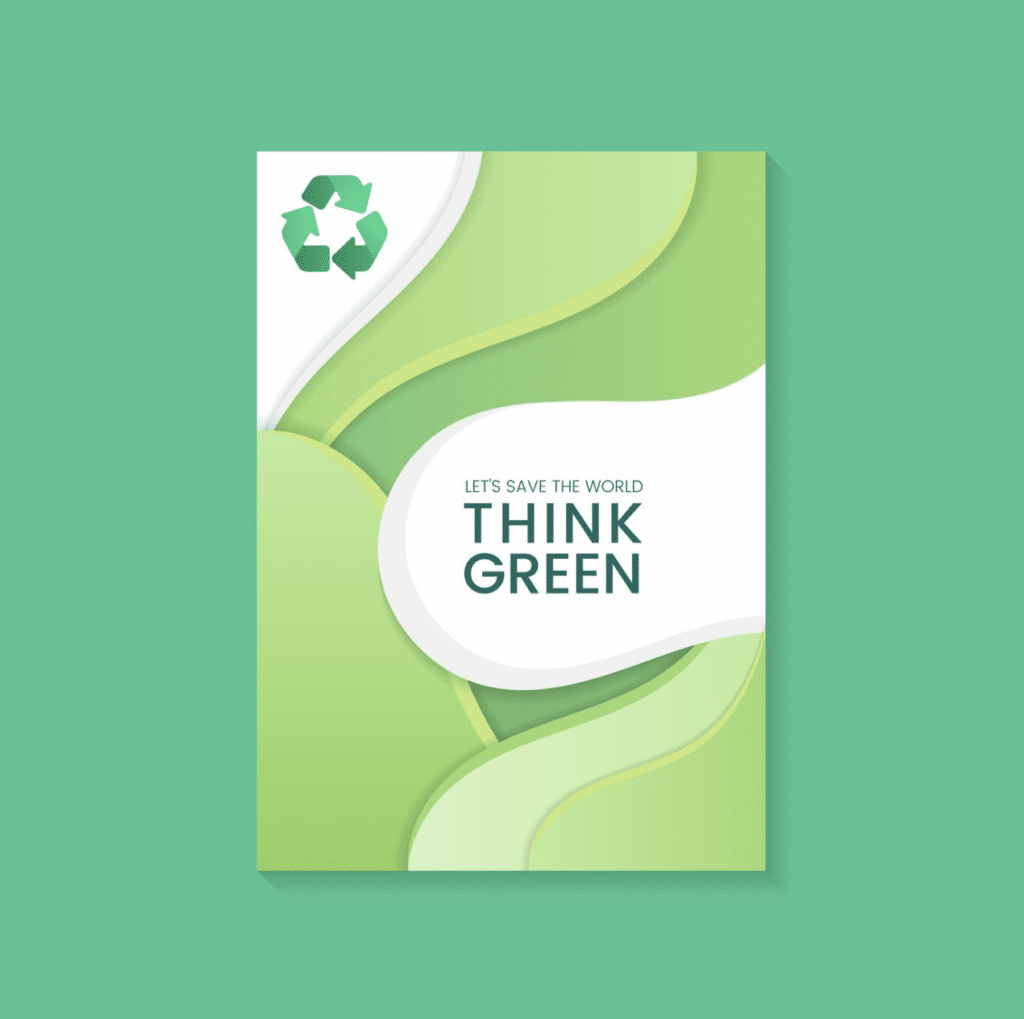In an era where environmental consciousness is paramount, sustainable event marketing has emerged as a crucial strategy for event planners and marketers. This approach not only resonates with eco-conscious attendees but also reflects a brand’s commitment to responsible practices. Sustainable event marketing is about creating impactful marketing strategies that minimize environmental footprint while maximizing engagement.
As we explore this topic, we’ll delve into the various strategies and practices that embody sustainable event marketing, demonstrating how they can be effectively implemented to make events both successful and environmentally conscious.

Understanding Sustainable Event Marketing
Sustainable event marketing is a holistic approach that encompasses several key areas:
- Eco-Friendly Practices: This encompasses using digital platforms for marketing to reduce paper waste, opting for environmentally-friendly printing options, and utilizing biodegradable materials for any physical marketing collateral.
- Ethical Messaging: Sustainable event marketing involves crafting messages that not only promote the event but also advocate for sustainability. This includes highlighting the eco-friendly aspects of the event and ensuring that all promotional content aligns with ethical and environmental standards.
- Long-term Impact Consideration: Adopting a long-term perspective in marketing decisions ensures that the strategies employed don’t just serve immediate needs but also contribute positively to environmental sustainability in the long run.
- Stakeholder Engagement: Engaging with stakeholders, including sponsors, vendors, and attendees, in sustainability efforts. This might involve collaborative projects or initiatives that promote environmental awareness and action.
- Use of Sustainable Materials: Prioritizing recycled, upcycled, or sustainably sourced materials for all marketing materials. This applies to both digital and physical marketing tools, ensuring minimal environmental impact.
- Energy Efficiency: Implementing energy-efficient practices in digital marketing efforts and event technology usage. This could involve optimizing digital platforms for lower energy consumption or using energy-efficient digital tools and equipment.
- Waste Reduction Strategies: A key part of sustainable event marketing is actively working to minimize waste in all marketing activities. This includes minimizing the use of disposable materials, promoting online ticketing and registrations to reduce paper use, and recycling marketing materials whenever possible.

Audience Engagement through Sustainability
Engaging an audience in sustainability for an event involves comprehensive and interactive strategies:
- Educational Content: Develop rich, educational content about sustainability. This could include detailed articles, engaging videos, and infographics explaining the event’s green initiatives, their impact on the environment, and the importance of each attendee’s role in these efforts.
- Interactive Sustainability Initiatives: Create unique, interactive sustainability initiatives. This can include eco-friendly workshops, live demonstrations of sustainable practices, sustainability-themed competitions, or challenges that encourage attendees to adopt green behaviors.
- Social Media Campaigns: Utilize social media to launch creative and impactful campaigns showcasing the event’s commitment to sustainability. Share stories of sustainable practices, highlight eco-conscious vendors or speakers, and engage with followers through sustainability-themed challenges and discussions.
- Sustainability-themed Events and Activities: Incorporate sustainability into the core of the event’s activities. Host panels with environmental experts, showcase sustainable technologies or products, and organize activities like tree planting or beach clean-ups that emphasize environmental responsibility.
- Feedback and Collaboration: Foster a two-way dialogue with attendees regarding sustainability. Encourage them to share their ideas and experiences, involve them in post-event sustainability reports, and collaborate on community projects that have a lasting environmental impact.
- Transparency in Sustainability Efforts: Maintain complete transparency about sustainability efforts. Share both the successes and challenges in achieving sustainability goals, and openly discuss the tangible impact of these efforts to build trust and authenticity.
- Incentivizing Sustainable Actions: Create incentive programs to reward sustainable actions by attendees. This could include special acknowledgments, discounts for future events, or gifts for those who participate in sustainable practices, encouraging a culture of environmental mindfulness.

Leveraging Digital and Social Media
Maximizing digital and social media for sustainable event marketing involves a nuanced approach:
- Eco-Friendly Digital Strategies: Beyond traditional digital advertising, explore innovative online strategies like interactive webinars on sustainability, digital contests promoting eco-friendly actions, and virtual tours showcasing your event’s green initiatives.
- Social Media Engagement: Engage your audience on social media by regularly posting about the importance of sustainability in events. Host live sessions discussing eco-friendly practices, share posts from other green initiatives and create a hashtag specifically for your event’s sustainability efforts.
- Influencer Partnerships: Collaborate with influencers who are vocal about environmental issues. These partnerships can include dedicated ‘sustainability takeovers’ on your social media channels, influencer-led discussions on green living, and shared content about reducing environmental impact.
- Content Marketing: Develop a comprehensive content marketing plan that includes in-depth articles on sustainable practices, interviews with eco-friendly vendors or speakers, and regular updates on how the event is achieving its sustainability goals.
- Virtual Event Options: For virtual event components, consider utilizing platforms that prioritize energy efficiency and sustainability. Provide virtual attendees with resources on how to enjoy the event in an eco-friendly way, such as tips on reducing energy consumption while streaming.
- Analytics for Sustainability: Utilize sophisticated analytics tools to gain insights into the effectiveness of your sustainable marketing efforts. Analyze engagement metrics to understand what resonates with your audience and adjust strategies accordingly.
- Community Building: Foster a digital community centered around sustainability. This could involve creating online forums, organizing virtual meetups focused on environmental topics, and collaborating with other events or organizations to spread the message of sustainability.
Sustainable Brand Partnerships and Sponsorships
Creating sustainable brand partnerships and sponsorships is key in sustainable event marketing:
- Selecting Eco-conscious Partners: In selecting partners, go beyond surface-level claims of sustainability. Investigate their environmental policies, initiatives, and track records. Consider their supply chain practices, energy consumption, and waste management strategies. This thorough vetting ensures that partners genuinely align with the event’s sustainability ethos.
- Collaborative Eco-Friendly Initiatives: Develop unique, joint eco-friendly projects that can range from integrating sustainable technology in event operations to organizing community-focused environmental initiatives. Collaborate on workshops or panels that discuss sustainability topics, bringing diverse perspectives to the event.

- Promoting Partners’ Sustainable Practices: Actively showcase partners’ sustainable actions through in-depth stories, interviews, or panel discussions during the event. This can create a deeper connection between attendees and the sustainability efforts, highlighting real-world applications of these practices.
- Innovative Sponsorship Opportunities: Craft sponsorship opportunities that directly impact the event’s green initiatives. This could involve sponsoring a series of sustainability-themed educational sessions, funding for carbon offsetting activities, or investment in sustainable infrastructure for the event.
- Transparent Communication: Maintain a policy of openness and regular updates with partners and sponsors regarding sustainability goals and achievements. This transparency fosters a collaborative environment and ensures that all parties are aligned in their efforts.
- Long-term Sustainability Goals: Encourage partners and sponsors to engage in long-term commitments to sustainability. Work together to set achievable and impactful environmental goals, creating a lasting legacy of sustainability that extends beyond the event.
- Sustainability Criteria for Partnerships: Develop comprehensive sustainability criteria that encompass various aspects of environmental responsibility. This could include policies on greenhouse gas emissions, water usage, sustainable material usage, and support for local communities.
Green Event Practices
Implementing green practices in event execution is crucial for sustainable event marketing:
- Eco-friendly Venues: When selecting venues, consider those that have implemented green roof systems, use energy from renewable sources like solar or wind power, and employ advanced environmental management systems to monitor and reduce their overall ecological footprint.
- Sustainable Catering Options: In addition to sourcing local and organic produce, ensure that caterers employ sustainable practices in their operations, such as using energy-efficient kitchen appliances, reducing plastic use, and employing water-saving techniques.
- Reduced Paper Usage: For necessary printed materials, opt for eco-friendly options like paper certified by the Forest Stewardship Council (FSC) and vegetable-based inks. Employ QR codes and interactive digital platforms to further reduce paper use.
- Waste Management and Recycling: Go beyond basic recycling; implement a zero-waste policy where possible. This includes setting up systems for attendees to sort waste and partnering with local waste management services for proper disposal and recycling.
- Energy-efficient Lighting and Equipment: Where possible, use LED lighting and Energy Star-rated equipment. Consider the layout of your event to maximize natural lighting and reduce the need for artificial lighting.
- Sustainable Transportation Options: Collaborate with local transportation services to provide discounted rates for attendees using public transport. Offer incentives for attendees who use bicycle-sharing services or electric vehicle charging stations.
- Carbon Offsetting Programs: Create a comprehensive carbon offset program by calculating the estimated carbon footprint of the event and investing in projects such as renewable energy, reforestation, or community-based environmental initiatives.
Measuring and Reporting Sustainability Impact
Enhancing the effectiveness of sustainability measurement and reporting in event marketing involves several comprehensive steps:
- Establishing Key Performance Indicators (KPIs): Develop a detailed set of KPIs tailored to the event’s sustainability goals. This might include specific targets for energy consumption reduction, percentages of waste diverted from landfills, and the number of attendees participating in sustainable initiatives.
- Utilizing Sustainability Measurement Tools: Use advanced tools and technologies for tracking sustainability metrics. This can include software for monitoring energy usage, waste management systems, and digital platforms for gathering attendee feedback on sustainability efforts.
- Regular Reporting and Analysis: Conduct in-depth analysis and regular reporting of sustainability performance. This involves not just quantitative analysis of KPIs but also qualitative assessment of the overall impact of sustainability initiatives.
- Transparency with Stakeholders: Maintain a policy of openness with all stakeholders by sharing detailed and regular sustainability reports. This could include publishing sustainability updates on the event website, sending newsletters, and presenting findings in stakeholder meetings.
- Leveraging Feedback for Improvement: Actively use feedback from sustainability reports for continuous improvement. This involves identifying areas of success and those needing improvement, and adjusting strategies accordingly.
- Certifications and Standards: Strive for industry-recognized environmental certifications and standards. Upon achieving these benchmarks, highlight them in marketing materials and reports to showcase the event’s commitment to sustainability.
- Storytelling in Sustainability Reporting: Employ storytelling techniques to make sustainability data more engaging and relatable. Share stories of how specific sustainability measures positively impacted the environment and the community, and highlight individual or collective stories of sustainable actions.

Long-term Strategies for Sustainable Marketing
Developing long-term strategies is essential for the continued success of sustainable event marketing:
- Incorporating Sustainability into Brand Identity: Sustainability should be deeply ingrained in your brand’s ethos, reflected in all marketing materials, corporate policies, and public relations efforts. This commitment should be evident not just in event practices but also in everyday business operations and company culture.
- Continuous Learning and Adaptation: Stay abreast of evolving sustainability trends and practices. Regularly attend sustainability-focused conferences, participate in workshops, and engage with thought leaders in the field to continually refine and update your strategies.
- Building Sustainable Partnerships: Foster long-term relationships with eco-conscious vendors, suppliers, and industry partners. This network can support shared sustainability goals, facilitate resource sharing, and amplify collective environmental impact.
- Investment in Sustainable Technologies: Allocate resources towards innovative green technologies and sustainable practices. This could range from investing in renewable energy sources for events to adopting digital tools that reduce the event’s carbon footprint.
- Community and Industry Involvement: Actively engage with both the local community and the broader industry in sustainability initiatives. Participate in community green projects and contribute to industry discussions and policy-making on sustainability.
- Regular Review and Improvement: Implement a systematic approach to reviewing and improving your sustainable event marketing strategies. Use feedback, performance data, and industry benchmarks to continually enhance your approach.
- Educating and Inspiring Others: Leverage your experiences to educate others about the importance and implementation of sustainable practices. Share your journey and successes in sustainability through case studies, blogs, or speaking engagements, inspiring others in the industry to follow suit.
Conclusion
As we wrap up our exploration of sustainable event marketing, it’s evident that this approach is not just a trend, but a crucial aspect of responsible business practice. Embracing sustainable event marketing offers a path to not only reduce environmental impact but also to resonate deeply with eco-conscious audiences. Platforms like Gevme, recognizing the importance of sustainability, offer tools and insights to help event professionals in this journey. Their commitment to sustainability showcases the potential for technology to aid in eco-friendly event management. The future of event marketing is unequivocally green, and by adopting the strategies discussed, event professionals can lead the charge towards a more sustainable and environmentally responsible industry.








